The News-Hub/ Articles
Back to Articles
Recommended Articles
Celebrating Female Environmental Activists and Leaders this International Women’s Day [2021]
Living in London, the Women of the World UK festival has become a staple in my yearly calendar for marking International Women’s Day (IWD). While it might look a bit different in 2021, there’s an exciting line-up of speakers, stories and voices standing up for women’s equality and female empowerment for this year’s festival. WOW UK is of course one of many festivals and activities taking place around the world to celebrate IWD.
The International Women’s Day 2021 theme is #ChoosetoChallenge. This urges us all to think about action we can take to accelerate progress on gender equality, recognise the need to speak up and call out gender bias, and celebrate women’s achievements. As women around the world are facing the social, economic and political consequences from COVID-19, there’s never been a more critical time to do so. When it comes to celebrating IWD, what better way than looking at women’s role in environmental sustainability and honouring some of the most influential female environmentalists?
But let us first recap the goals and history behind IWD, when it was established, and why we celebrate it on this specific day.
What is International Women’s Day?
IWD is celebrated in many countries around the world and across society, and is dedicated to celebrating the social, economic, cultural and political achievements of women. It provides a powerful platform globally to drive action to accelerate women’s equality and call out gender inequality and bias.
Despite the pandemic, there are still plenty of ways to get involved with IWD activities this year. If you’re a fan of social media, you can choose to strike the Choose to Challenge pose – with your hands held high – and post it to encourage others to commit to helping forge an inclusive world. Or it might also be a great opportunity to focus your efforts on fundraising for a female-focused charity. Whatever you’re thinking, there’s lots of inspiration and great resources available on the IWD website to help you host your own events within your local community, networks, organisations, and group.
What is the History of International Women’s Day?
IWD has been observed for more than a century, with its origins dating back to the early 1900s. It began with a protest in 1908 by 15,000 women against long work hours, low pay and lack of voting rights in New York City. In honour of those strikes, a year later the Socialist Party of America declared the first National Woman's Day on February 28.
Inspired by events in the US, the concept also caught on in Europe. In 1910, during an International Conference of Working Women in Copenhagen chaired by German campaigner and socialist leader Clara Zetkin, the proposal was put forward and unanimously agreed by delegates from 17 countries to establish a Women's Day, which would be international in character. First celebrations took place on March 19, 1911, involving over a million people in Austria, Denmark, Germany and Switzerland.

The 8 March aka International Women's Day. Photo by Pixabay from Pexels
While IWD originated from action taken by the women’s labour movement in the US, the day subsequently also became linked with the peace movement demanding the end of World War I (WWI) and also with revolutionary action in Russia. 15 April, 1915 saw a further large demonstration held in the Hague in the Netherlands involving over 1,300 women from over 12 countries. Having been established in Russia in 1913, the nation’s 1917 IWD demonstration on 8 March (23 February in the old Russian calendar) was also the first day of the Russian Revolution. Facing significant food shortages with famine looming, and against a backdrop of popular unrest, female textile workers took to the streets of St Petersburg – then called Petrograd - marking a key beginning in the chain of events that led to the overthrow of the tsar.
Fast forward to 1975 when the United Nations (UN) first began celebrating 8 March as IWD and two years later in 1977, when the General Assembly adopted a resolution recognising this. The first theme adopted by the UN for IWD in 1996 was “Celebrating the past, Planning for the Future".
Do We Still Need an International Women's Day?
The short answer is a resounding yes! The continued underrepresentation of women in decision-making on environmental sustainability and climate change – whichever level we’re looking at and despite some of the great examples included below – is proof why there can’t be any room for complacency. We’re still some way off from achieving the original aim of IWD to drive full gender equality for women around the world.
For example, a 2019 report on the gender composition of the bodies established under the UN Framework Convention on Climate Change (UNFCCC) showed that efforts to achieve gender balance are still insufficient. Not only does the global architecture for climate change action lack adequate gender representation, but we also often miss other important links, such as for example between climate justice and racial justice. When more women are involved in decision-making and when we take a more inclusive approach to climate policy making, the environment wins too.

Photo by Matthew TenBruggencate on Unsplash
Who Are Some Famous Female Voices on Climate Change?
Climate change is a women’s issue. While progress on representation is certainly still needed, it does seem particularly fitting to celebrate IWD through the achievements of women policy-makers leading the charge to implement solutions against the climate change threats facing our planet.
With women actively involved across so many domains, you might say that’s an obvious choice for a policy nerd like myself – and it certainly made writing this article a real treat! But arguably there isn’t anywhere where “climate action by, and for women” holds more true than at the frontline of climate change policy. Along with a brief snapshot of some of their achievements, below are also some of their powerful words I’m sure we can all draw huge inspiration from.
“I believe in human ingenuity – that when we decide on a task to be done, no matter how daunting it may seem at the beginning, we are able to unleash human ingenuity and human innovative capacity that was unknown, and takes us to a solution.” – CHRISTIANA FIGUERES
Christiana Figueres, a Costa Rican diplomat, has an impressive history of involvement in climate change negotiations going back to 1995. She also founded and led the Centre for Sustainable Development of the Americas (CSDA), a climate change policy think tank until 2003. She was subsequently appointed the Executive Secretary of the UN Framework Convention on Climate Change (UNFCCC) in 2010. Having taken office following the failed COP15 climate change conference in Copenhagen, the crowning achievement of her six-year tenure at the UNFCCC was undoubtedly successfully spearheading the 2015 Paris Agreement – now regarded as the ‘most ambitious global resolution against climate change in human history’.
The recipient of many awards and recognition from governments, civil society and media alike, Figueres was ranked among the Top 100 Time magazine Influential Leaders of the World in 2016 which described her as “a fierce and gentle fighter who tells it like it is but never wavers in her unrelenting optimism” and “gets results”. Her optimism was much in need to help to rebuild the momentum of the talks – or rather to remove them from “the political trash can” as she aptly puts it. Ultimately, it is Figueres’ belief in humanity’s collective capacity for innovation that makes ‘the case for stubborn optimism on climate’.
"We will only make progress if we act in concert with one another, not just competition." – GRO HARLEM BRUNDTLAND
Gro Harlem Brundtland hardly needs an introduction but perhaps the best way to sum up her achievements is that she’s considered the “mother of sustainable development”. With a career that spans serving as Norway’s Minister of the Environment, then three times elected as the Prime Minister of Norway and being appointed as the Director-General of the World Health Organization from 1998 to 2003, she also served as UN Special Envoy on Climate Change from 2007 to 2010.
Most notably, a high point of her career has been chairing the World Commission on Environment and Development, which helped establish the concept of sustainable development as it is generally understood today as part of its landmark report, “Our Common Future”. Crucially, the report sought to link environment and development, describing sustainable development as “development that meets the needs of the present without compromising the ability of future generations to meet their own needs”.
In the decades since, Brundtland has remained one of the most vocal advocates on development and the environment, but also a strong supporter of international cooperation. In her 2018 Barbara Ward Lecture at the International Institute for Environment and Development, she made a powerful case for cooperation when it comes to developing new methods of environmentally-sustainable economic growth and tackling the other big global challenges. Her awards are also numerous, but perhaps her greatest accolade is her unofficial title in her native Norway where is she affectionately known as “Landsmoderen,” or “mother of the nation”.
“Transforming our societies and our economies is an agenda that requires the participation of all. Including and empowering women and girls to develop and implement climate solutions is the right thing to do. It is also the smart thing to do.” – PATRICIA ESPINOSA
Patricia Espinosa, a Mexican diplomat, succeeded Christiana Figueres as the Executive Secretary of the UNFCCC, taking office in 2016. She emerged as a leader in the global challenge to address climate change and its consequences by heading the UN climate change talks COP16 in Cancun back in 2010. Given our narrowing window for decisive action, as we look ahead to COP26 this year, Espinosa has set out four key elements that will ensure a successful outcome from the Glasgow summit. As she continues to serve as the UN’s top climate change official, she has spoken out on behalf of those whose voices are not being heard.
In considering future climate solutions, female empowerment is critical but is often overlooked, even as we have a woman at the top of UNFCCC for the second time in a row. For example, a 2017 paper from the UNFCCC revealed that only one out of three delegates at the last two climate conferences were women. Speaking during a Dinner for Women Leading on Climate Change at a COP23 side panel, she argued “when it comes to climate change, we need women at the negotiating tables, in boardrooms and as the heads of businesses, in the streets and in the fields”, reiterating her support for the Gender Action Plan that the conference adopted.

Young female climate activist during a climate protest. Photo by Markus Spiske from Pexels
“If we took away barriers to women's leadership, we would solve the climate change problem a lot faster” – MARY ROBINSON
Former president of Ireland and UN High Commissioner for Human Rights, Mary Robinson has also twice served as a UN climate envoy. In a similar fashion to Espinosa, Robinson has relentlessly promoted gender equality and given a platform to those whose lives are most likely to be affected by climate change. She speaks powerfully of the need for better inclusion by reflecting on her own experience of attending her first climate conference: “There was nothing about human rights. Nothing about gender. Nothing about what I understood to be the problem. ... [But] once women ministers got involved and said they wanted to have grassroots women, indigenous women, young women in their delegations, that made a lot of difference. I saw it happening when you had indigenous women speak truth to the male delegates about the reality of being on the front lines of climate change. They didn't live in a world that was being changed dramatically for the worse - indigenous women live that reality.”
Moreover, Robinson is a strong advocate that climate change should be viewed as “climate justice”. Her call to make the issue of climate change personal is intended to spur us all on to do what we can: “When you go out the door, make up your mind to do something you weren’t doing this morning,” whether recycling, or switching off lights, or using less water, or getting rid of waste, or using public transport. “Do something that is your ownership of the climate issue.”
"We have 10 years to act on the climate emergency. To act, not sit around for 10 years thinking and discussing how to act” – ANNE HIDALGO
And finally, while some of the examples above may seem UN-centric, a more local example would be that of Anne Hidalgo who has served as mayor of Paris since 2014. A major part of her program and time in office has been dedicated to the environment and her call for urgent action is one that should be heeded! She introduced the “Paris Breathes” initiative back in 2016, which included a ban on motor vehicles from entering certain parts of the city on the first Sunday of each month. She joined President Macron in calling for the adoption of a Global Pact for the Environment in 2017. And she championed the idea of Paris becoming a 15-minute city (Ville Du Quart D’Heure) at the start of 2020. Key to this idea is making sure residents can reach necessary amenities (such as schools, offices, shops, parks, health centres) on their doorstep – shifting dependency away from cars in order to cut air pollution levels.
Inevitably, the list above is quite a subjective, personal thing, and there’s an abundance of inspiration to be found in the stories of many women across the world who are using their voices – from boardrooms to local communities, from science to activism – to show leadership and call for action on climate change. Which women fighting climate change have inspired YOU the most? Tell me more in the comments section below!
Happy International Women’s Day!
Empty content. Please select category to preview



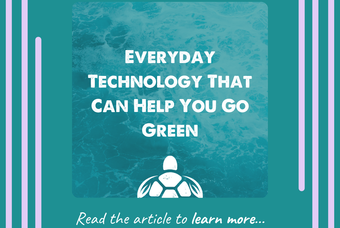
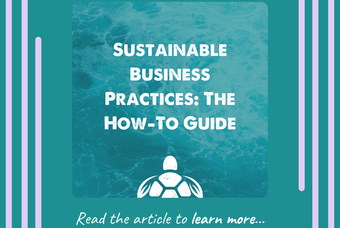

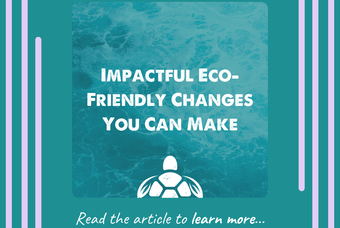
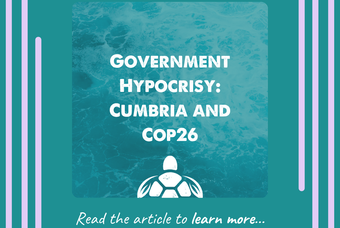
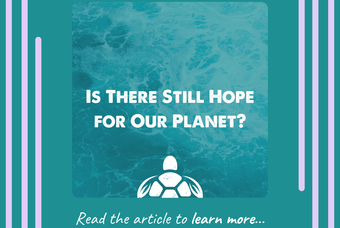
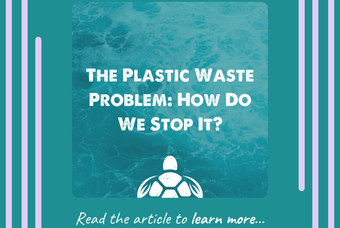
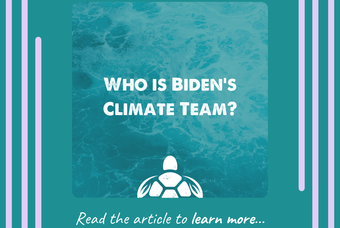
0 comments. Write a comment